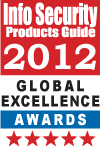Andrew Hay…
Is Data Safer on Premise or in the Cloud? It Depends.
Andrew Hay discusses whether data is more secure on the premise or in the cloud. While Andrew makes reasonable points for the cloud, he is partial to having datacenter, because he can “see, with [his] own eyes, the network, host, physical, and operational security capabilities, policies, and procedures [his] service provider will follow”. We agree Andrew, check our post from earlier in the month.
Endpoint Security.info…
1 TB of data on the Clinton Administration gone missing
Critical data from the Clinton Administration has been lost. The data that has been lost includes logs of events, social gatherings, and political records, as well as the social security number of a daughter of former Vice President Al Gore.
CNN | Travel…
How to safeguard your data as you travel
Debra Allen gives readers some simple tips on keeping data secure when connecting wirelessly on travels.





